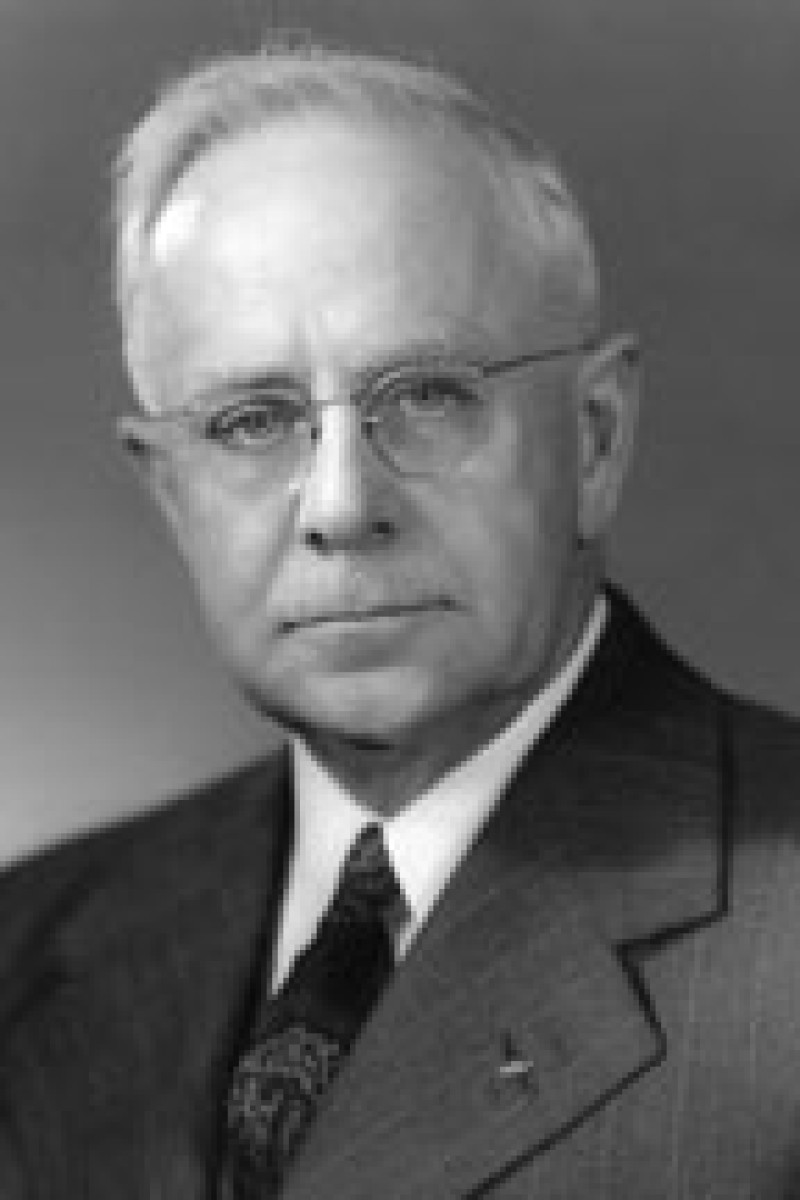Henry Arthur Middleton
Henry Arthur Middleton, a descendant of one of the authors of the Declaration of Independence, became the third Toledo resident to the serve on the Supreme Court of Ohio after he waged a successful write-in campaign for election in November 1950.
Middleton was born on July 19, 1888 in Urbana to Arthur N. and Alice Taylor Middleton. His adopted parents, Charles and Mary E. Dodson, raised him in Springfield. He attended Boston University and the Ohio State University College of Law, where he graduated in 1911. After his admission to the Ohio bar that year, he joined the law firm of Wilson and Rector in Columbus.
By 1917, Middleton returned to Champaign County and entered military service. Capt. Middleton was honorably discharged on Sept. 24, 1919.
Following his return to the United States, Middleton resumed the practice of law in 1919, moving to Toledo and joining the firm of Brown, Geddes, Schemettau and Williams. He became a partner in the firm in 1921 and remained with the firm and its successors for 30 years. In 1938, Middleton began a two-year term as the president of the Toledo Chamber of Commerce. He formed the law firm of Middleton, Morgan & Leatherman in 1949, shortly before his successful campaign for a seat on the Supreme Court.
Middleton’s opportunity to serve on the Supreme Court came about through an unfortunate turn of events. Justice Edward Turner suffered a cerebral hemorrhage and died on Sept. 13, 1950. Gov. Frank J. Lausche appointed Judge Howard E. Faught to succeed Justice Turner. Because the vacancy on the high court occurred more than 40 days before the next statewide general election Justice Faught was required to run for election to complete the term. Too little time remained, however, for candidates to be nominated through a primary or ballots to include the candidates’ names. Justice Faught and opponents were forced to run as write-in candidates. Middleton joined six other candidates to oppose Justice Faught. Middleton received more than 282,000 write-in votes, more than the combined total for his seven opponents.
One significant case of Justice Middleton’s Supreme Court career includes Scheibel v. Lipton (1952).
Scheibel involved the issue of liability for a guest who was injured on a homeowner’s property. Herman and Esther Lipton of Youngstown invited acquaintances, Mr. and Mrs. Adrian Scheibel, to their home. When Mr. Scheibel arrived at the darkened Lipton home, he found no one there. He attempted to return to his car, but wandered off the sidewalk onto the Lipton yard where he fell into a deep hole. His injuries required medical care for which he was billed $500. Scheibel sued the Liptons to recover the cost of the medical bills.
The court of common pleas of Mahoning County and the court of appeals decided for Adrian Scheibel. The Liptons appealed the decisions to the Supreme Court. In writing for the majority, Middleton reversed the decisions of the lower courts and found for the Liptons. Middleton, citing tort law conclusions that an invited guest must take property as they find it, stated that the Liptons had provided a reasonably safe means of access to the property through a paved walk and driveway. He also found that Scheibel was the social guest of the Liptons, who were not liable for a defect on the premises caused by ordinary neglect.
Middleton served the remaining four years of Justice Turner’s term. He was defeated in his November 1954 bid for election by Judge James F. Bell of Madison County, who capitalized on the popularity of the name of former Supreme Court Justice Charles S. Bell.
Justice Middleton returned to Toledo to resume private practice and to represent the Toledo, St. Louis and Western Railroad. He remained active with the Ohio Bar Association and the American Bar Association. He served on the Ohio Bar’s State Board of Examiners and Board of Commissioners on legal grievances and discipline.
Middleton married the former Myrtle E. Johnson in 1907 and they had one son, James A. Middleton. Justice Middleton died March 28, 1975, the last surviving World War I veteran of Lucas County, and sole remaining member of that county’s Last Man’s Club of World War I veterans. Funeral services were at the Bennett Mortuary in Toledo and burial took place in Urbana.

b. July 19, 1888
d. March 28, 1975
112th Justice of the Supreme Court of Ohio
TERM
Jan 1, 1950
to Jan 1, 1954
